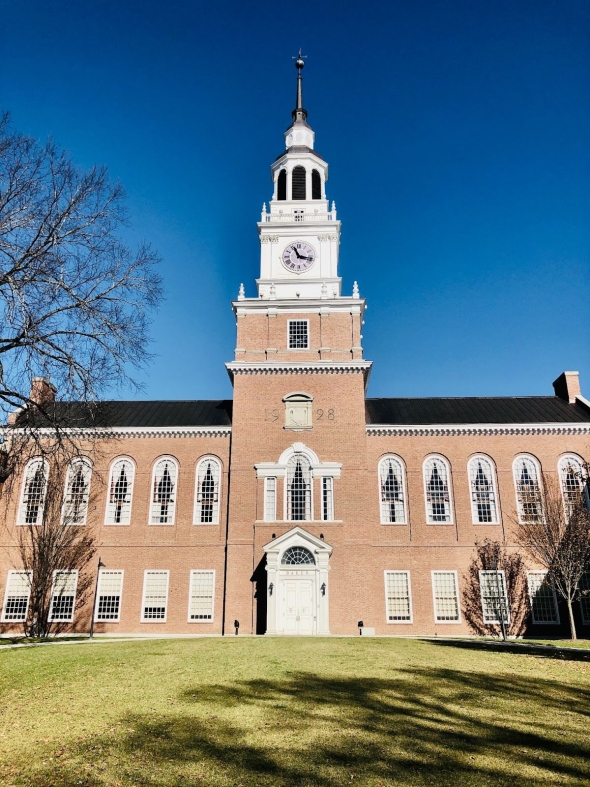
My College Application Journey
I want to start by saying this is just my experience—everyone's college application process is a little different, with its own details and nuances. What worked for me might not work exactly the same way for you, and that's okay.
I didn't really start seriously thinking about college until my sophomore year of high school. I went to a public agricultural and technical high school—not a traditional high school with a full AP lineup or tons of academic electives. But I did have the opportunity to dive deep into environmental science through a specialized Natural and Environmental Sciences program. That program really sparked my interest in biology, engineering, environmental studies, and STEM in general. So, when it came time to think about college, I knew I wanted a school that would support and build on those interests.
Personally, I was looking for a college that would challenge me academically, nurture my hobbies and interests, and connect me with a community I felt at home in. More than anything, I wanted a school that fit my personality—not just a "good school" on paper.
Naturally, that led me down a rabbit hole of research. (Honestly, way too much research.) I spent a lot of time comparing schools, reading about programs, and stressing over whether I would get into the places I really wanted. The anxiety definitely crept in at times.
By my junior year, I started visiting colleges. Since I'm from the Boston area, I focused mostly on New England schools. My parents came along during every tour, and those trips sparked a lot of conversations—not just about academics, but about lifestyle, cost, and what we each thought would make a good "fit."

For me, I wanted strong STEM programs, flexibility to combine majors and explore interdisciplinary interests, and easy access to outdoor activities. I also wanted to stay relatively local. For my parents, the two biggest priorities were whether I would be happy—and whether we could afford it (affordability ended up being one of the most important pieces of the entire process). So even as we toured campuses and got a sense of what urban vs. rural schools looked like, or technical vs. liberal arts approaches, cost was always in the back of our minds.
By the summer before senior year, I had narrowed down my list to about six colleges—and Dartmouth stood out as my top choice. The combination of strong academics, a flexible liberal arts curriculum, outdoor opportunities, proximity to home, and solid financial aid made it the best fit for me.
In the fall, I applied Early Decision to Dartmouth. At the same time, I submitted a few Early Action applications to other schools on my list. My thinking was: if I got into Dartmouth and the cost lined up with what we expected, I would commit. If I got in but the cost ended up being way off, I would have to rescind my offer for financial reasons. And if I didn't get in, I'd submit an additional round of regular decision applications for the rest of the schools on my list.
Throughout all of this, I kept communicating with my parents about each possible outcome. I think that's really important—especially if cost is a factor in your decision-making. You want to make sure you're being realistic about what's possible without letting small cost differences be the only thing driving your choice.
As you can probably guess, things ended up working out. In mid-December, I opened my Dartmouth decision and found out I had been accepted. On top of that, Dartmouth's financial aid package turned out to be the best offer I received—only slightly more expensive than attending a local state university. After accepting my offer, I shifted focus to applying for outside scholarships and making the most of the rest of my senior year.
Looking back, the whole process seems like it moved in a straight line—but in reality, I spent so much time making sure Dartmouth was the right choice for me. I visited campus twice, read everything I could find, talked to students and alums. All of that helped, but honestly, the biggest thing was the feeling I got every time I learned more about the school.
If something keeps "clicking" every time you interact with a college—during visits, reading about it, watching videos—I think that feeling is worth paying attention to. Probably more than any list of pros and cons or tiny differences in financial aid packages. I could have saved myself a lot of stress if I had realized that earlier.
In the end, I'm really happy with where I ended up—and so is my family. Thinking about the decision as something we made together helped the whole way through.
If you're thinking about applying to Dartmouth (or are weighing an offer right now), I hope this gives you a little reassurance. Trust yourself, stay open, and don't lose sight of what really matters most to you.


















